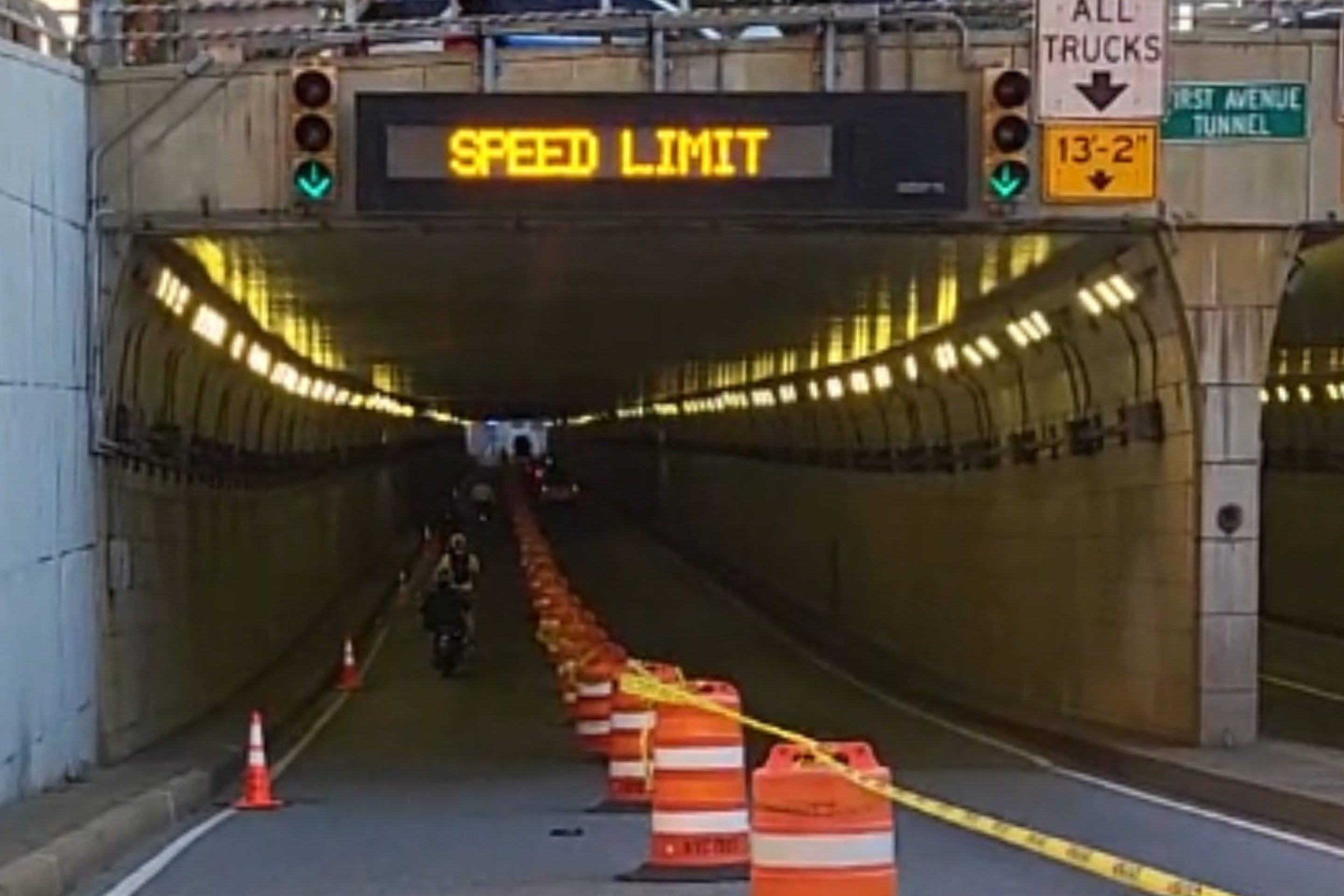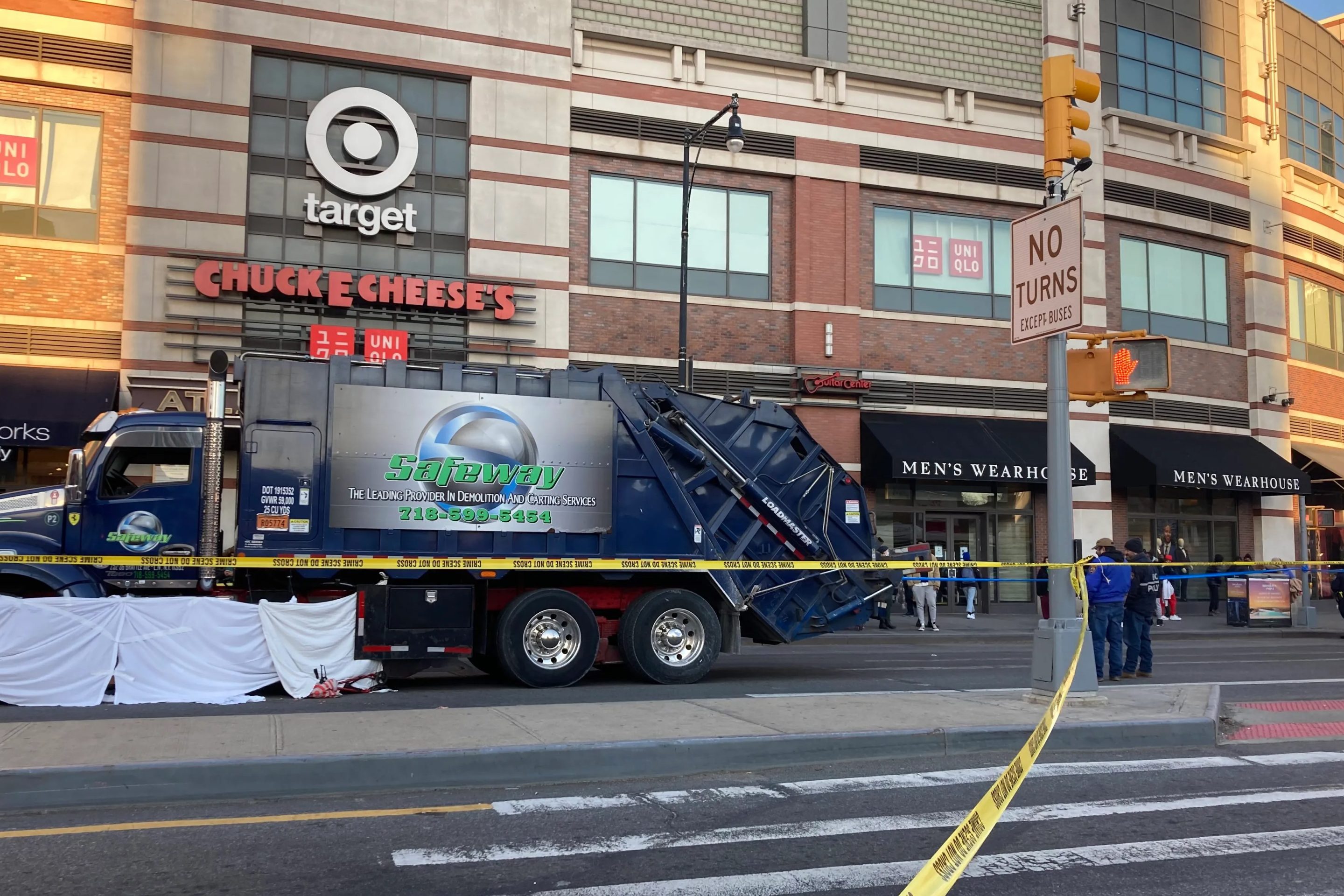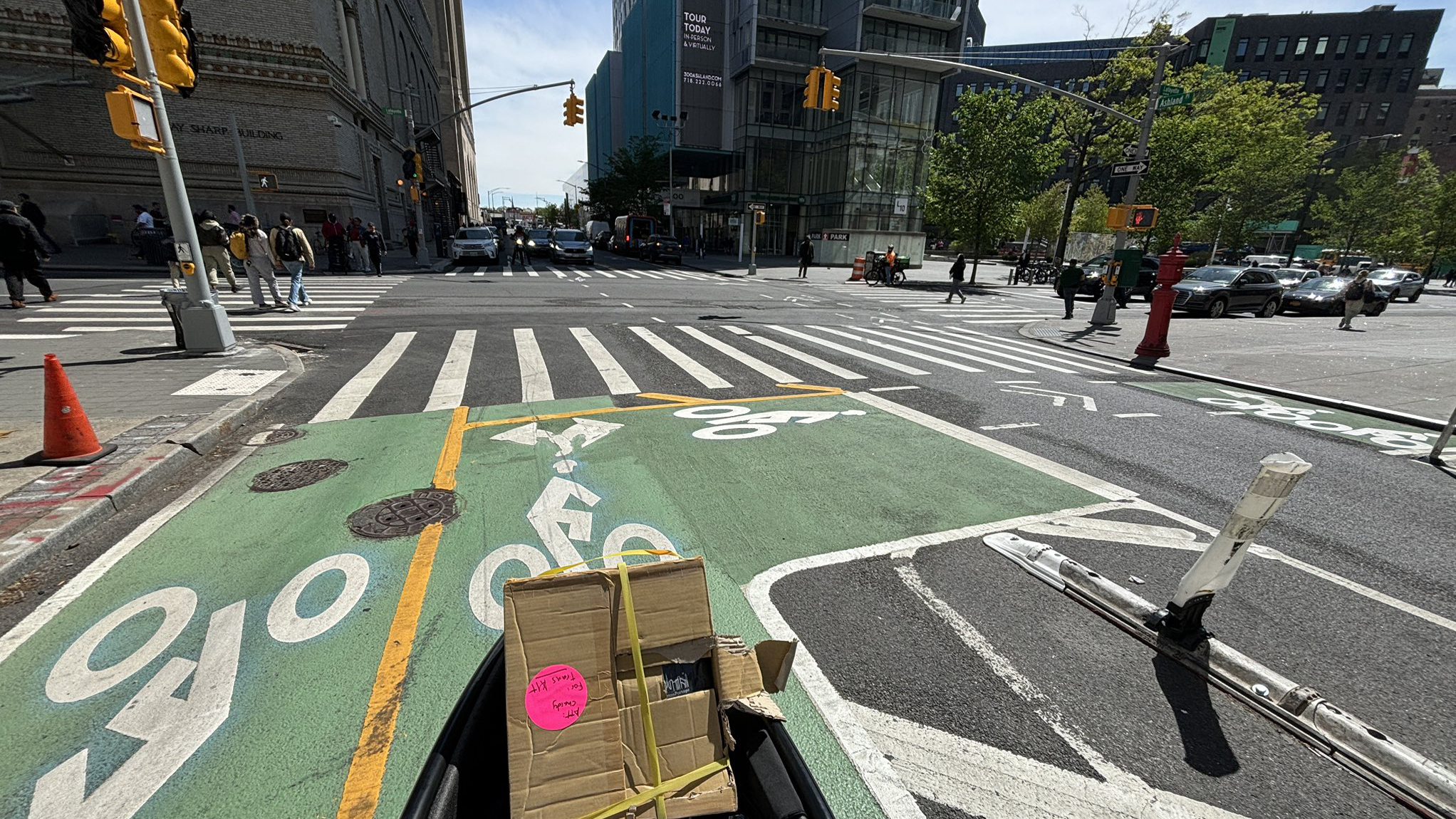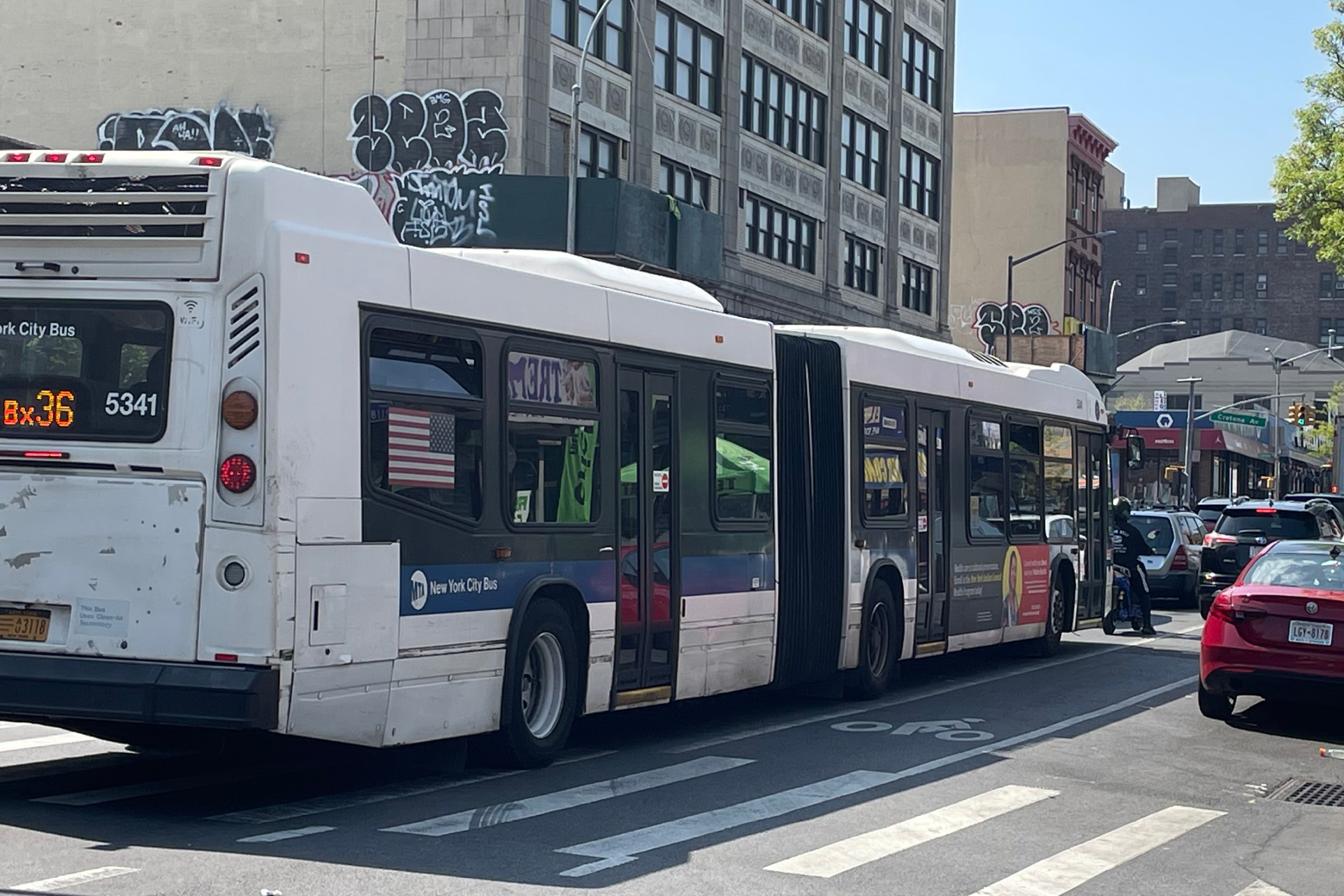City Council Still Has Work to Do To Ensure Justice For E-Bike Riders
12:01 AM EDT on April 8, 2020
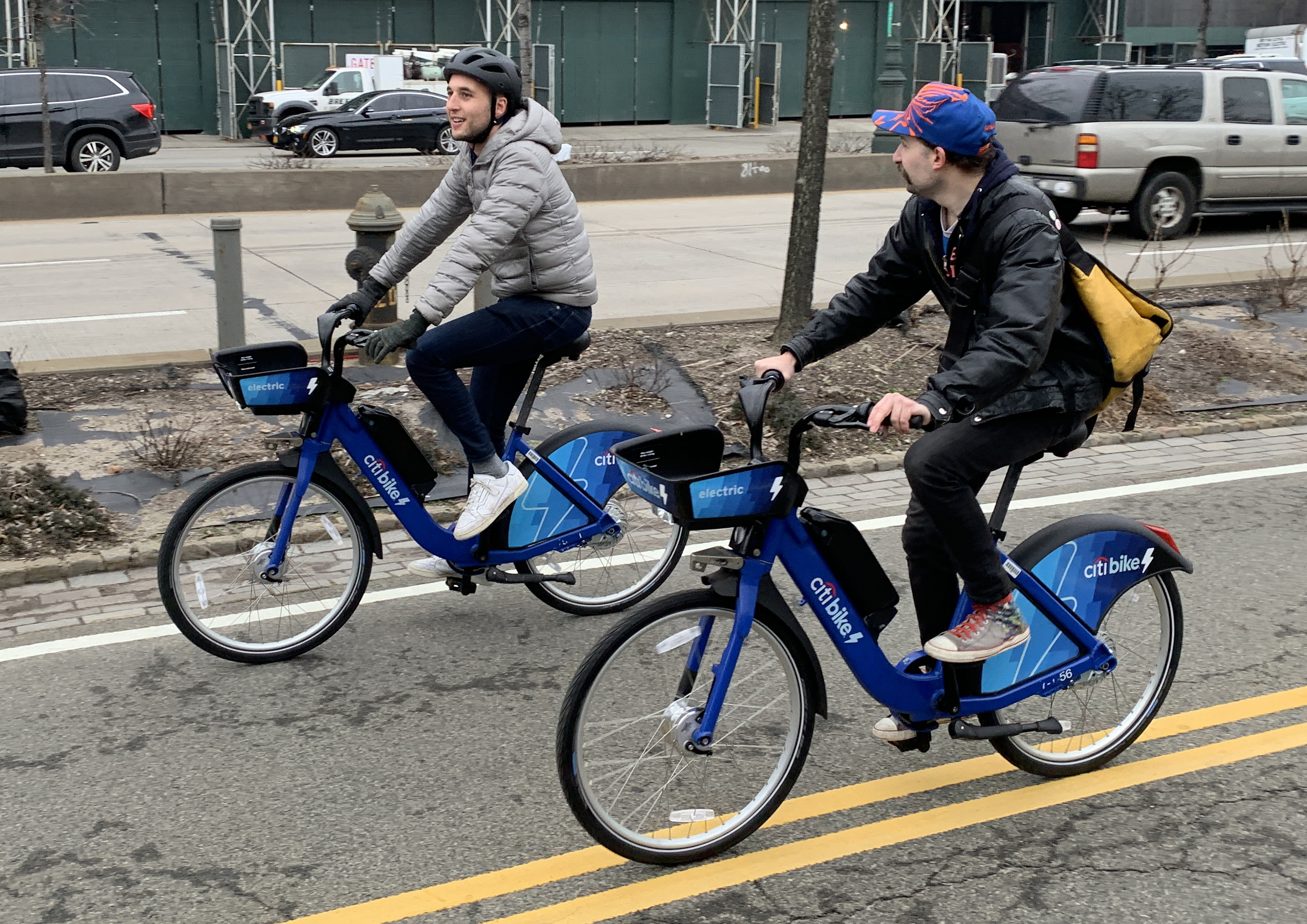
That was then…
Success has many fathers, but the ban on now-legal electric bikes on the Hudson River Greenway is an orphan.
Indeed, there's no end to politicians and advocates who will take some portion of the well-deserved credit for getting e-bikes legalized in the state budget — a move, more than a decade in the making, that will end the unconscionable crackdown on mostly immigrant, always underpaid delivery workers.
But no one is willing to go on the record about how the now legal bikes — including electric Citi Bikes, which have never been illegal — are now illegal to ride on the Hudson River Greenway, the nation's most popular bike lane.
The Hudson River Greenway e-bike ban was created by Manhattan legislators who carried water for the well-heeled Hudson River Park Friends, the park's private non-profit conservancy. Opponents of e-bikes vaguely refer to e-bikes as more dangerous than non-electric bikes, even though the city's own crash data shows that only nine pedestrians were injured by e-bike riders in 2018. At a hearing last year, Hudson River Park Friends Executive Director Connie Fishman told legislators that the greenway "has never allowed motorized vehicles on it" and stated without evidence that e-bikes and e-scooters would be a danger on the bike path.
State Senators Brad Hoylman and Liz Krueger, who are behind the greenway ban, did not respond to requests for comment. The Hudson River Park Friends did not respond, either.
One thing is clear: Opponents are not arguing based on facts, but on unfounded fears.
"This is a policy that is based on no data at all and on the unfounded belief that e-bikes are somehow inherently dangerous," Marco Conner, said the deputy director of Transportation Alternatives.
The e-bike legalization bill does allow localities to create their own regulations, and experts believe the City Council can simply override the state's greenway ban.
Conner said that New York State Vehicle and Traffic Law 1642 allows the city to set its own rules on using the greenway. That section of the law allows any city with a population above one million people to "regulate traffic on or pedestrian use of any highway (which, for the purposes of this section, shall include any private road open to public motor vehicle traffic)," including whether vehicles like bikes can use a highway.
State Senator Jessica Ramos, whose bill legalizing e-bikes paved the way for the budget deal that finally brought e-bikes out of the cold, agreed that the final legislation specifically gave local control to municipalities. She urged city legislators to allow e-bikes on the greenway.
"E-bike riders, and especially delivery riders, shouldn't be penalized for utilizing for using a work tool that doesn't kill anyone," Ramos said.
But outer-borough freshmen state senators don't have the kind of megaphone possessed by politically connected conservancy officials and wealthy board members, who play a disproportionately powerful role in American politics. As such, even one of the biggest supporters of delivery workers was playing it cool.
Council Member Ydanis Rodriguez, who chairs the Transportation Committee, said that he was leaning towards allowing e-bikes on the greenway, but added that he wanted to hear about "safety" concerns from supporters of the ban. He promised to make his final decision based on data.
"We'll distinguish between those who want to make things better or those who want to kill any new changes," Rodriguez said.
Council Member Fernando Cabrera, who's now the sponsor of the Council bill that would regulate e-bikes, said he's open to legalizing them on the Greenway, but he also couched his answer.
"My personal opinion is that as long as people use e-bikes at around the same speed you see on regular bikes, there's no reason to ban e-bikes from the greenway," said Cabrera — an odd sentence, given that e-bikes can go nearly three times faster than regular pedal bikes.
Cabrera did say he supports e-bikes on the Greenway. He also said he would fall back on the data: "I don't think there's been any data to show there have been more crashes due to e-bike use on the greenway."
And outside the Council, no one wants to call out the state lawmakers who created this legislative mess in the first place. Diplomacy seems to be the order of the day.
"We are troubled that the e-bike legalization law appears to restrict e-bikes from the nearly 13-mile greenway and will be seeking more clarity," said New York League of Conservation Voters president Julie Tighe, who nonetheless believes that "it is critical to make sure e-bikes are as widely available as possible[because] expanding space for low-emission modes of transportation will also help slash emissions and improve air quality."
A spokesperson for Citi Bike declined to discuss the company's lobbying effort, but it is likely to be substantial. A ban on e-bikes on the Greenway would be a disaster for the Lyft-owned bike-share system, whose electric bikes are extremely popular year round. The specter of tourists or paying annual members getting harassed by the NYPD at the behest of a politically connected park group is chilling.
"We are confident that our city partners will quickly act to address this," the spokesperson said, again diplomatically.
Cabrera said a decision on the fate of e-bikes on the greenway would come after a hearing this summer, when the City Council gets back to some semblance of normalcy.
If Hudson River Park conservancy executives make the case that there's not enough room on the greenway to accommodate e-bike and e-scooter riders, Ramos said that the city and state have a responsibility to find room for them, even if that means widening the greenway at the expense of the West Side Highway.
"This is a greenway for everyone who's not in a car, and we have to design the future of our streets there. That future has to accommodate alternative means like e-bikes and e-scooters. Just because we made a grid 100 years ago and the carved out roads for cars, doesn't mean cars serve the same purpose today. we need to make changes to best utilize the land we have, because streets belong to people, not cars."
The de Blasio administration, led by a longtime foe of delivery riders, is so far refusing to wade into the fray. A spokesperson Department of Transportation said that the agency is "still reviewing how the regulation might be applied along the Greenway," but did not respond to a question on what those interpretations could be.
Meanwhile, local legislators will also have to ensure that commercial e-bike riders can park their bikes without police harassment, owing to a provision in the state law that says commercial e-bikes can only be parked on the sidewalk during immediate pickups or deliveries. Helen Ho, the co-founder of the Biking Public Project, pointed out that this is just another way to try to separate e-bikes from regular bikes and that it ignores the idea someone could use their bike for commercial and personal purposes. In addition, without ample bike parking, a law like this is just another ticket trap for workers that the city has come to see as essential.
"The sidewalk parking ban is just another vector for harassment and ticket stings," Ho said. "I don't see every neighborhood in the city removing parking to put in bike corrals, so this just makes a new problem."
Cabrera said he was open to changing that section of the law as well, and said that at the moment it should be ignored in the same way that the city instituted a moratorium on e-bike ticketing during the coronavirus pandemic.
"There should be a hands-off approach to delivery riders right now because they're risking their lives, and that includes something like using the sidewalk to park. These are people putting it all on the line, and it should be the last thing the NYPD should be going after with all the issues we're facing at the moment," Cabrera said.
Dave Colon is a reporter from Long Beach, a barrier island off of the coast of Long Island that you can bike to from the city. It’s a real nice ride. He’s previously been the editor of Brokelyn, a reporter at Gothamist, a freelance reporter and delivered freshly baked bread by bike. Dave is on Twitter as @davecolon. Email Dave Colon at dcolon@streetsblog.org
Read More:
Stay in touch
Sign up for our free newsletter
More from Streetsblog New York City
DOT Aims to Build First Ave. Tunnel Bike Lane Before September’s UN General Assembly
DOT hopes to have the concrete-protect tunnel bike lane installed this summer, but its exact plans are still in development.
Waste Reforms Could Require Data on Crashes, Dangerous Driving
The proposal affects at least one trucking company with a deadly driving record.
When it Comes to Federal Infrastructure Grants, Size Does Matter
Cities and municipalities with larger budgets and staff are more likely to win competitive federal infrastructure grants, the Urban Institute has found.
Tuesday’s Headlines: Real Estate Greed Against Good Bike Lane Design Edition
A real estate developer's opposition to the Ashland Place protected bike lane yields some baffling bike lane markings. Plus more news.
City Considers Fixes for Another Ridiculously Slow Cross-Bronx Bus
Potential bus improvements are on the table for the Bronx's Tremont Avenue, but the Adams administration's failures on nearby Fordham Road loom large.
